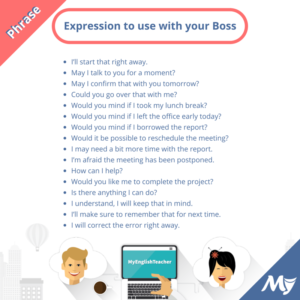
What is the best way to correct your boss, politely?

What is the best way to correct your Boss politely? The Boss can be wrong at some times. Best methods to correct your Boss on times when he is wrong in his judgment.

What is the best way to correct your boss, politely?
Every one of us likes to think they are on the right boat, but we can’t be right all the time. People often hesitate to accept they did the wrong deed and blamed others. But the mistakes made by managers and leaders can be particularly costly. In some cases, it can be disastrous.
Reputations are built and broken, money made and lost, and success earned and risked based on the decisions they make. But the more power managers have in the organisation; the less likely employees are to pick them up on errors, because, well, they are the boss.
It is more important to speak up when you know that your boss made an error. But the prospect of doing so can disrupt even the bravest person. Your boss may want probably the one who hired you and who signs your paycheck. He or she is the one link above you in the food chain. He might not appreciate being deceived by a “subordinate.”
- So, will you risk yourself telling him about his error?
- Or will you bite your tongue and leave the firm to sort out the mess?
If your organization’s wellbeing and your integrity matter to you, it’s vital to conquer your fears and speak up. It may feel unnatural and unsafe, and it may go against your office culture, but, when you are graceful and adept, you can help your boss to put things right without upsetting anyone.
This blog will guide you through some of the essential points to consider when you have to tell your boss he is wrong.
Eight Tips for Raising Your Concerns or correct your boss

- Do Your Homework
You must be sure that your manager has made an error before you mention it. Keep in your mind that he likely has access to more information than you and that he could be right. Double-check the issue, because flagging something wrongly will only make you look out of touch.
You will also need to develop at least one potential solution that you can offer. Try to support your suggestions with data. Then, you may provide insights that your manager doesn’t have. Whether or not your solution gets approved, having a remedy ready will exhibit your initiative. It gives you credibility, and let you move the conversation past the mistake to focus on putting things right.
- Check Your Motives
Before you knock on your manager’s door, take a moment to think whether it’s worth mentioning his error. It is probably the best to let minor matters drop, so as not to appear moaning, critical or undermining. It will also make any intervention that you make in the future far more impactful.
Consider whether you feel like speaking up to be contrary or nitpicky. You could make the matters a whole lot worse, without good cause. But if there is a solid business reason to worry, or if the mistake might damage your manager’s reputation, he may be relieved to hear your concerns.
- Time It Right
Choosing the right time to grab your boss’s attention is vital to correct your boss. Don’t expect to march into his office with a list of queries and receive a warm welcome, or to raise the point in a team meeting and be thanked for it. Complex discussions will most likely go well when you allow your boss to pick a time when he can give you his complete attention.
However, if you spot any immediate and critical problem unfolding, don’t hesitate to inform your boss. You may have little choice, but you should speak up publicly before it is too late. Just remember that it is still your boss’s responsibility to decide how to proceed.
- Show Respect and Humility
Speak to your boss privately whenever possible. Don’t publicize the issue and embarrass him in front of other people.
If it’s an emergency raise the issue respectfully if you don’t have an option to speak to him privately. Your tone should be in a way that doesn’t challenge the chain of command or threaten your manager’s position. If he shuts you down in the middle of the conversation, accept it, and take up the matter again later behind closed doors.
Start by politely asking permission with him to discuss a complicated issue. It gives your boss a moment to brace himself and to invite you to continue. If everything is well, move on in a spirit of respect. Maturity, empathy and humility can probably ease the situation, whereas being opinionated, gloating or acting as you know more than your manager will “go down like a lead balloon.”
It is essential to stay professional and to focus on the business, even if you are motivated to speak because of how your manager’s mistake will impact you personally. The last but least thing you want to do is to sound as if your interests matter more than the firm’s, or to zero in on your manager’s personal failures. So, focus on how his error will affect your team’s goals and the firm’s mission.
- Mind Your Language
Be careful when you use words like “mistake” and “wrong.” An “I told you so” voice tone and blunt language apportions blame will make it appear as if you are out to “score a win.” If your manager thinks that you have come to expose or insult him, he will just dig in or, worse, retaliate.
So, be polite and courteous. Use less emotive, more collaborative language. Lead your boss into a problem-solving session instead of a sour argument. Try to clear the route for him to get into your ideas without taking offence or losing face.
- Escalate Your Concern Cautiously
If you feel that your manager’s error has financial, legal or health and safety implications, you could be justified in escalating your concerns. The HR department is often an excellent place to go to test out your thoughts, in confidence before turning to your manager’s boss.
Again, ensure to control your emotions and to moderate your language. Remember that your reputation is at stake, too.
If your boss’s actions are especially severe, or even illegal, you must put your concerns in writing, to cover yourself. You might want to take more robust action, too. But wait for a moment to think about it twice, because whistleblowing can itself have severe consequences.
- Admit Your Own Mistake without hesitation
At some point in this process, you may find that it is you who made a mistake. Your reaction for being corrected can matter as much as how you told your manager that he was wrong. Embrace the correction with good grace and offer an apology if appropriate. Otherwise, you could seriously injure your relationship with your boss.
- Let Go
Sometimes, you have to accept that your manager will press ahead. Maybe you failed to convince him, or he can’t be seen to change his mind. Whatever be the reason, when it becomes clear that he is “sticking to her guns” it is usually best to bow out gracefully and avoid raising the matter again.
In some instances, it might be wise to make a note of the fact that lead you raised the concern, in case of future investigations.
Why It’s Crucial to Say “Stop”
By gathering up the courage to let your manager know when he is wrong, you could prevent a disaster, save a reputation, or protect a career. It could make you a more valuable employee. Speaking up might feel uncomfortable, but it’s essential to do it because unchallenged authority can lead to catastrophe.




